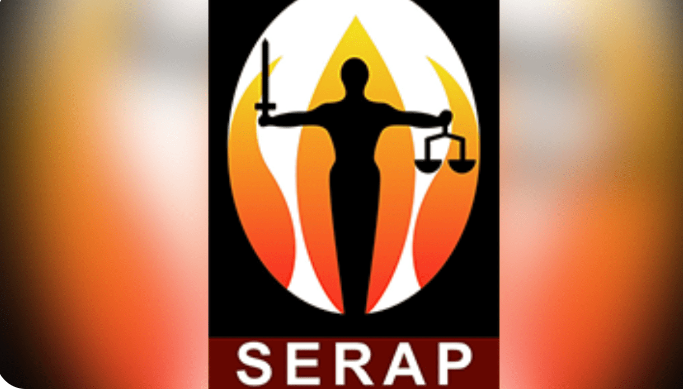
Clampdown or Control? Nigeria’s Controversial Bill Sparks Outrage Over Digital Censorship

In a bold and urgent move, the Socio-Economic Rights and Accountability Project (SERAP) has sounded the alarm on a controversial bill that threatens to clamp down on digital freedom in Nigeria. The bill, which aims to amend the Nigeria Data Protection Act 2023, has ignited a firestorm of criticism from civil society groups, digital rights activists, and concerned citizens who see it as a dangerous lurch toward authoritarian control of online spaces.
Signed and delivered in a letter dated April 12, 2025, SERAP's Deputy Director, Kolawole Oluwadare, urged the leadership of the National Assembly—Senate President Godswill Akpabio and House Speaker Tajudeen Abbas—to urgently reject what they described as a “repressive and regressive” piece of legislation. The bill has already sailed through its first and second readings in the Senate, setting off alarm bells about its rapid progression through Nigeria’s legislative machinery.
The bill, formally titled A Bill for an Act to Amend the Nigeria Data Protection Act, 2023, proposes sweeping changes that critics warn could significantly undermine the country’s digital space. One of its most controversial provisions requires that bloggers and social media platforms open physical offices within Nigeria or face severe penalties. Furthermore, the bill demands that all bloggers register with a “recognized national blogging association,” a move widely perceived as a government effort to bring independent voices under control.
For many observers, this is déjà vu—a rebranded attempt to reintroduce the much-criticized and previously rejected “social media bill” that aimed to regulate online discourse in Nigeria. According to SERAP, this latest proposal poses a “grave threat to digital freedoms,” and is incompatible with both Nigeria’s Constitution and international obligations protecting the right to free expression.
Perhaps the most chilling aspect of the bill lies in its implied threat to shut down or ban major global platforms such as Facebook, Instagram, WhatsApp, X (formerly Twitter), YouTube, and TikTok if they fail to meet the new requirements within a 30-day window. Such an action, SERAP warns, would not only stifle dissenting voices and criticism of government policies but also sever vital lines of communication and expression for millions of Nigerians.
“Requiring bloggers to register or join associations is incompatible with democratic principles and would have a chilling effect on freedom of expression,” SERAP noted, emphasizing that such a requirement is a direct violation of the right to free speech and freedom of association. The group went further, raising serious concerns about the potential use of the bill as a tool to compel bloggers to reveal their sources—an action that would shatter the foundations of press freedom and put whistleblowers, journalists, and activists at risk.
Critics have also highlighted the economic and technological ramifications of the bill. Forcing international tech companies to establish physical offices in Nigeria would significantly increase operational costs and could discourage these companies from maintaining a presence in the country altogether. The result? A digital brain drain, a stifled tech ecosystem, and reduced access to essential online tools for everyday Nigerians.
“In a globally interconnected world, such legislation is out of step with modern digital realities,” the statement from SERAP read. “It will not only infringe on digital rights but could also harm businesses and limit Nigerians’ access to vital online tools.”
Nigeria, often referred to as the tech hub of Africa, stands at a precarious crossroad. While innovation continues to surge in Lagos and beyond, policies such as this risk derailing progress and isolating the country from the global digital community. With millions of Nigerians relying on digital platforms for business, education, and social engagement, the fallout from such legislation could be severe.
The bill also raises serious concerns about the centralization of power and the potential for abuse. By granting the government the ability to determine who qualifies as a blogger or what constitutes acceptable digital speech, critics argue that the bill sets a dangerous precedent for state censorship and the erosion of civil liberties.
SERAP’s warning shot doesn’t stop at condemnation. The organization has made it clear that it is prepared to challenge the bill in court should it be passed and signed into law by President Bola Tinubu. According to their statement, the bill would be met with immediate legal opposition on constitutional grounds, citing international conventions and legal principles that guarantee freedom of speech without prior restraint.
“No one should be required to obtain permission or register with authorities to operate a blog or online platform,” SERAP emphasized, urging lawmakers to remember their constitutional duty to defend the rights of the people, not curtail them. “The National Assembly must uphold its constitutional responsibility to protect citizens’ rights and not become the arbiter of truth in a democracy.”
As Nigerians watch closely, the question remains: will lawmakers listen to the growing chorus of opposition, or will they push ahead with legislation that could redefine the nation's digital future?
One thing is certain—this is more than a policy debate. It is a defining moment for Nigeria’s democracy, one that will test the nation’s commitment to fundamental freedoms in the digital age.


